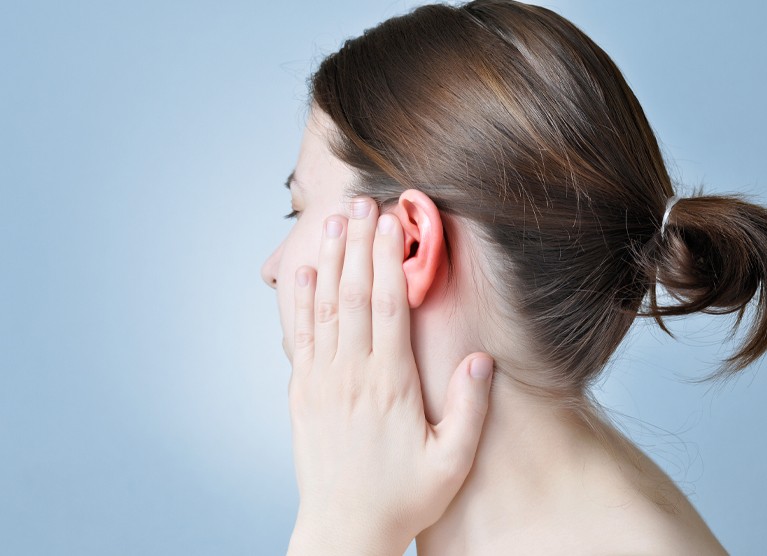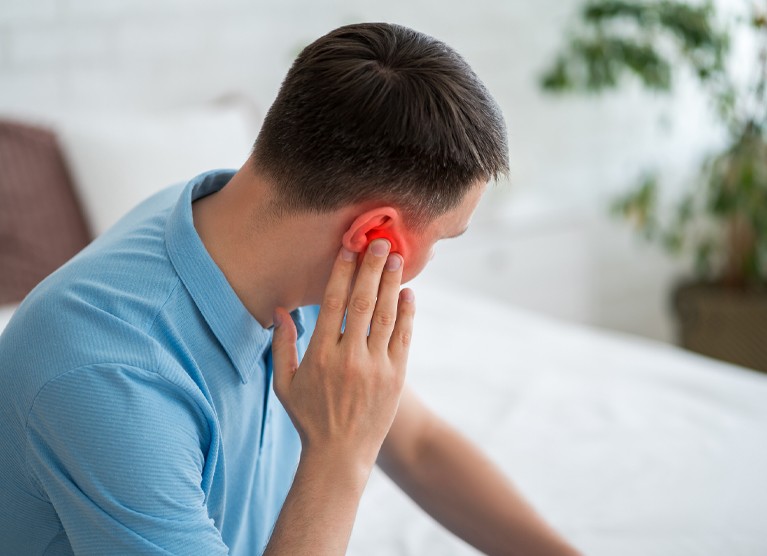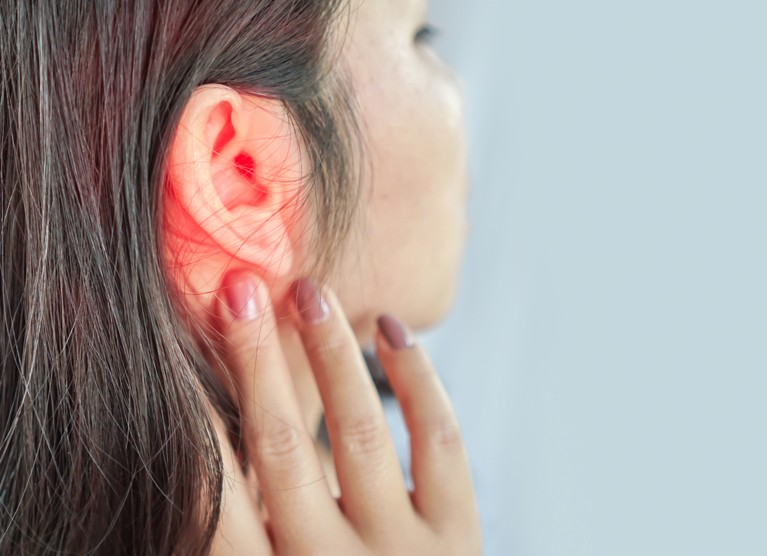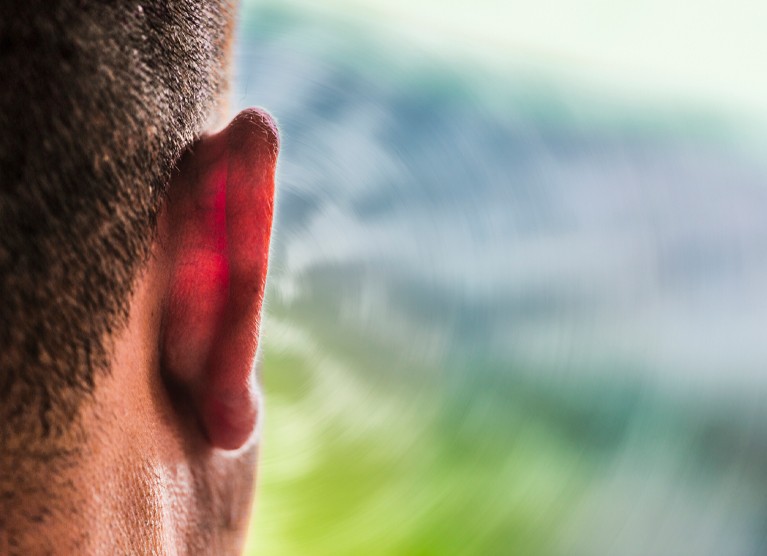Why Are My Ears Red and Warm? Understanding the Causes and What You Can Do
Have you ever noticed your ears turning red and warm seemingly out of nowhere? While it can be a strange and sometimes uncomfortable experience, this phenomenon is often harmless and surprisingly common.
At Beltone, we understand that anything out of the ordinary related to your ears can spark concern, especially if you're also experiencing changes in hearing. Let’s explore the many reasons your ears might feel red and warm and when it's time to seek professional care.

What Does It Mean When Your Ears Are Red and Warm?
When your ears become red and warm to the touch, it usually means there's an increase in blood flow to the area. This response can be triggered by a range of physical, environmental, and even emotional factors. For most people, it’s a temporary issue that resolves on its own. However, persistent or painful symptoms might indicate a deeper concern.
Common Causes of Ears Feeling Red and Warm
1. Sudden Temperature Changes
Walking from a cold room into warm air (or vice versa) can prompt your blood vessels to expand or contract rapidly, resulting in flushed, warm ears.
2. Emotional Responses
Embarrassment, anger, or excitement can cause a rush of blood to your ears, making them look and feel hot. This is a completely natural, if slightly awkward, physical reaction.
3. Sunburn
Your ears are often exposed and can burn easily, especially in sunny or snowy environments where UV exposure is high. A sunburned ear can appear red, feel hot, and even become painful to the touch.
4. Hormonal Fluctuations
Changes in hormone levels, such as during menopause or puberty, can increase blood circulation and body heat, sometimes causing warm, red ears.
5. Spicy Food or Alcohol
Both spicy foods and alcoholic beverages can cause vasodilation (widening of the blood vessels), which might make your ears flush with warmth and color.
6. Skin Conditions
Conditions like seborrheic dermatitis or eczema can cause redness, itching, and heat in the ear area, especially if the skin becomes inflamed.
7. Ear Infections
Infections such as otitis media or otitis externa (swimmer's ear) can cause one or both ears to become red, warm, swollen, and sore. These infections are often accompanied by pain, discharge, or changes in hearing.
8. Physical Trauma
Scratching, bumping, insect bites, or even newly pierced ears can become inflamed, resulting in redness and warmth as the body initiates the healing process.

Less Common Causes of Red and Warm Ears
- Red Ear Syndrome: A rare condition typically affecting one ear, characterized by burning pain and heat. It may also be accompanied by tinnitus or hyperacusis.
- Perichondritis: An inflammation of the ear's cartilage, often related to trauma or infection.
- Trigeminal Neuralgia: A nerve disorder that can cause facial and ear discomfort.
Why Is Only One Ear Red and Warm?
It’s not unusual for only the left or right ear to be affected. This could be due to:
- Uneven sun exposure
- Lying on one side during sleep
- Localized infections or irritation
- Red Ear Syndrome, which typically affects a single ear
If only one ear is consistently red and warm, and the sensation doesn’t subside after a short time, it may be worth getting it checked out by a health care provider or hearing care professional.
Do Red and Warm Ears Mean High Blood Pressure?
While facial flushing, including redness in the ears, can sometimes accompany high blood pressure, it's not a definitive symptom. If you're also experiencing headaches, dizziness, or vision issues along with red ears, it’s a good idea to consult your doctor.

Can Allergies Cause Ears to Feel Red and Hot?
Yes. Allergies, especially skin-related ones, can cause itching, redness, and inflammation around the ears. Reactions to hair products, earrings, or fabrics can all cause your ears to feel irritated and warm.
How to Soothe Red and Warm Ears
Most of the time, red and warm ears don’t need medical treatment. Here are a few at-home remedies you can try:
- Cool Compress: A cold washcloth can help calm down inflammation and reduce redness.
- Aloe Vera Gel: Great for sunburns, aloe can soothe and hydrate overheated ears.
- Avoid Triggers: If you notice certain foods, temperatures, or emotions cause flare-ups, avoiding those triggers can prevent recurrence.
- Gentle Skincare: Use hypoallergenic products to avoid skin reactions near your ears.
If symptoms persist or worsen, it’s important to seek medical advice.
Red and Warm Ears in Children
Just like adults, kids can experience red and warm ears due to emotions, temperature, or infection. However, if your child is tugging at their ears, running a fever, or appears in pain, it might indicate an ear infection that requires pediatric attention.

When to Seek Help
If your ears are persistently red and warm, especially if accompanied by pain, fever, hearing loss, or discharge, it may signal an underlying issue. At Beltone, our hearing care professionals can perform a comprehensive evaluation to ensure your ears and hearing are in top shape.

Take Online Hearing Test
Take our free at-home hearing loss test as a first step on your journey to better hearing.

Book Your Free Appointment

Reviewed By
Kathy McGowan, AuD CCC-A, Doctor of Audiology
Kathy McGowan is the Manager of Managed Care Programs with Beltone Corporation . Kathy worked with the Professional Development Training Team as well as the Operations Team and Beltone Corporate Retail for 8 years before being promoted to her current position. Prior to joining Beltone Corporate, Kathy worked for 10 years as an Audiology Manager in a private practice. She has worked in many settings as an Audiologist including an ENT practice, a hospital, an Optical and Hearing Company, and in the Military, retiring as a LtCol. Kathy earned her Bachelor’s in Speech and Hearing and Master’s in Audiology from Ohio University in Athens, Ohio, and went on to receive her Audiology Doctorate from A.T. Still University School of Health Sciences. Kathy is currently licensed in seven states.

